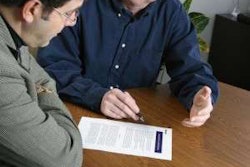Chasing the dream

Business ownership always has been the cornerstone of the American dream. During its 100-year history, CCJ has tracked the efforts of many fleet owners and managers to improve the transportation industry. Perhaps one of the greatest legacies is the opportunities they have created for drivers to obtain self-employment.
The driver as the owner-operator of a vehicle did not appear in the annals of trucking history for nearly 50 years after CCJ published its first issue in 1911. By law, interstate motor carriers could not enter into lease arrangements for equipment and drivers. The Motor Carrier Act of 1935 allowed only carriers with a certificate of authority from the Interstate Commerce Commission to transport freight across state lines. Motor carriers had to obtain ICC “authorities” for the lanes, rates and types of freight to be transported. The regulations made it difficult for new market entry.
In 1957, the concept of the owner-operator surfaced when Congress passed the Trip Lease Bill. For the first time, motor carriers could lease a truck and driver from an individual who did not have ICC authority. Before then, carriers only could “spot-lease” equipment and drivers from other carriers that had ICC authority by using “interchange agreements” along adjoining interstate routes.
Under a trip lease, the motor carrier had exclusive custody, control and responsibility for the safety of the equipment and driver for the duration of the lease. For the first time, a driver could start a business without the onerous – and expensive – process of obtaining ICC authority. Since then, the owner-operator has been an integral part of the way trucking does business.
When the Motor Carrier Act of 1980 deregulated trucking, many owner-operators obtained their own motor carrier authority. Several of the largest trucking companies today were founded by an owner-operator who grew from trip leasing into fleet ownership.
The owner-operator is under scrutiny.
In the years following deregulation, the Department of Transportation established truth-in-leasing regulations to protect the interests of the owner-operator. The regulations required carriers to state compensation and deductions in lease agreements. Lease-purchase programs also became common practice as a way for carriers to offer drivers an alternative way to buy and finance equipment as an inroad to self-employment.
Many carriers today are built on the owner-operator business model. But despite its rich 50-plus years of history, that model has come under intense scrutiny in recent years.In 2007, Sen. Barack Obama introduced a bill that, if passed, would have given the Department of Labor, the Internal Revenue Service and lawyers much greater power to prosecute companies for misclassifying employees as independent contractors, says transportation attorney Tom Kretsinger Jr., who also is president and chief executive officer of Liberty, Mo.-based American Central Transport.
One of the areas Obama’s bill sought to change was the “safe harbor” provisions of the IRS code (Section 530) that specify the criteria for an independent contractor. Only Congress can overturn these safe harbor provisions, which include legal precedents such as the lease-to-own arrangement between carriers and owner-operators.
For now, the congressional threat appears to have subsided – but other threats remain. President Obama’s proposed budget for fiscal year 2012 includes an additional $50 million to support the Department of Labor’s ongoing efforts to fight the misclassification of workers as independent contractors.
The IRS also has been given additional money to increase the number of companies it audits specifically for misclassification issues. A number of states have set up task forces to target companies for misclassification as one way to replenish their unemployment compensation funds.
The future status of the owner-operator is uncertain. What is certain, however, is that the trucking industry has a rich history of being an inroad to the American dream.
Aaron Huff is Senior Editor of Commercial Carrier Journal.
E-mail [email protected] or call (801) 754-4296.










